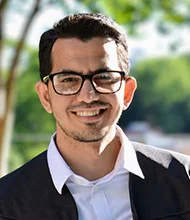
Education
- Ph.D., Mechanical Engineering (AI & Deep Learning) – Georgia Institute of Technology, USA (2019–2023)
Thesis: Learning 3D Robotics Perception using Inductive Priors - M.S., Mechanical Engineering (Robotics) – Georgia Institute of Technology, USA (2019–2023)
- B.S., Mechanical Engineering – GIK Institute of Engineering Sciences and Technology, Pakistan (2011–2015)
Graduated Magna Cum Laude; Dean’s Honor Roll (all semesters)
Research & Professional Experience
- Research Scientist– Toyota Research Institute (2024–Present)
- Core contributor and co‑led multi‑task policy learning and post‑training for robotics foundational Large Behavior Model.
- Managed collaborations with UC Berkeley, CMU, and other institutions.
- Published in CVPR, ECCV, ICCV, ICRA, IROS; filed multiple U.S. patents.
- Research Intern – Toyota Research Institute (2021–2022)
- Developed single-shot reconstruction and pose estimation methods.
- Co-authored papers in ICRA and ECCV; filed multiple U.S. patents.
- Research Intern – SRI International (2020)
- Designed a novel vision-language navigation model.
- Graduate Research Assistant – Georgia Tech (2019–2023)
- Led projects in multimodal AI, robot perception, shape reconstruction, and 6D pose estimation.
Biography
Dr. Zubair Irshad is an accomplished AI and Robotics researcher with a Ph.D. in Mechanical Engineering from the Georgia Institute of Technology, specializing in Artificial Intelligence and Deep Learning. His work spans academia and industry, with expertise in 3D perception, robot learning, foundation models, and multimodal AI.
Dr. Irshad has published over 20 peer-reviewed papers at leading conferences such as CVPR, ICCV, ECCV, ICRA, and IROS and has actively serves as a reviewer for major conferences including NeurIPS, ICLR, RSS, and RA-L. Beyond research, he has mentored various researchers, co-organized workshops at leading conferences and assisted teaching of multiple courses in deep learning and robotics.
Currently, at Toyota Research Institute, Dr. Irshad works on Large Behavior Models (LBMs) and deep learning–based 3D perception systems for robotics. He has recently been a core contributor to the LBM 1.0 multi-task policy learning and post-training efforts, advancing generalist robot manipulation.
Selected Publications
- A Careful Examination of Large Behavior Models for Multitask Dexterous Manipulation, arXiv 2025.
- Zero-Shot Novel View and Depth Synthesis with Multi-View Geometric Diffusion, CVPR 2025.
- NeRF-MAE: Self-Supervised 3D Representation Learning for Neural Radiance Fields, ECCV 2024.
- DROID: A Large-Scale In-The-Wild Robot Manipulation Dataset, RSS 2024.
- NeO 360: Neural Fields for Sparse View Synthesis of Outdoor Scenes, ICCV 2023.
- ShAPO: Implicit Representations for Multi-Object Shape, Appearance, and Pose Optimization, ECCV 2022.
For a complete list of publications, please see Google Scholar Profile .
Filed U.S Patent Applications (Selected)
- Performing a three‑dimensional Computer Vision task using a Neural Radiance Field grid representation of a scene produced from two‑dimensional images of at least a portion of the scene. US Patent App. 19/010,943
- Implicit Representations for Multi‑Object Shape, Appearance and Pose optimization. US Patent App. 17/868,614
- System and method for Single‑shot multi‑object 3D shape reconstruction and categorical 6D pose and size estimation. US Patent App.63/243,984
- Zero‑Shot Novel View and Depth Synthesis with Multi‑View Geometric Diffusion. US Patent App. 63/737,994
Teaching & Mentorship
- Graduate Teaching Assistant – Deep Learning (Georgia Tech, 2021).
- Teaching Practicum – Robotics (Georgia Tech, 2021).
- Mentored 10+ students and interns at Georgia Tech and Toyota Research Institute.
Talks & Workshops
- Embodied AI for 3D Perception leveraging Inductive Priors – GIKI (2025).
- Towards Embodied 3D Foundation Models – Habib University, Pakistan (2024).
- Towards 3D Foundation Models — Facebook AI Research (2024)
- Neural Fields in Vision/Robotics and Beyond – Stanford (2023).
- Learning Object‑Centric Neural 3D Scene Representations – Robotics & AI Institute (2023)
- Lead Co-organizer: Robo3D-VLMs Workshop (CVPR 2025), RoboNeRF Workshop (ICRA 2024).








